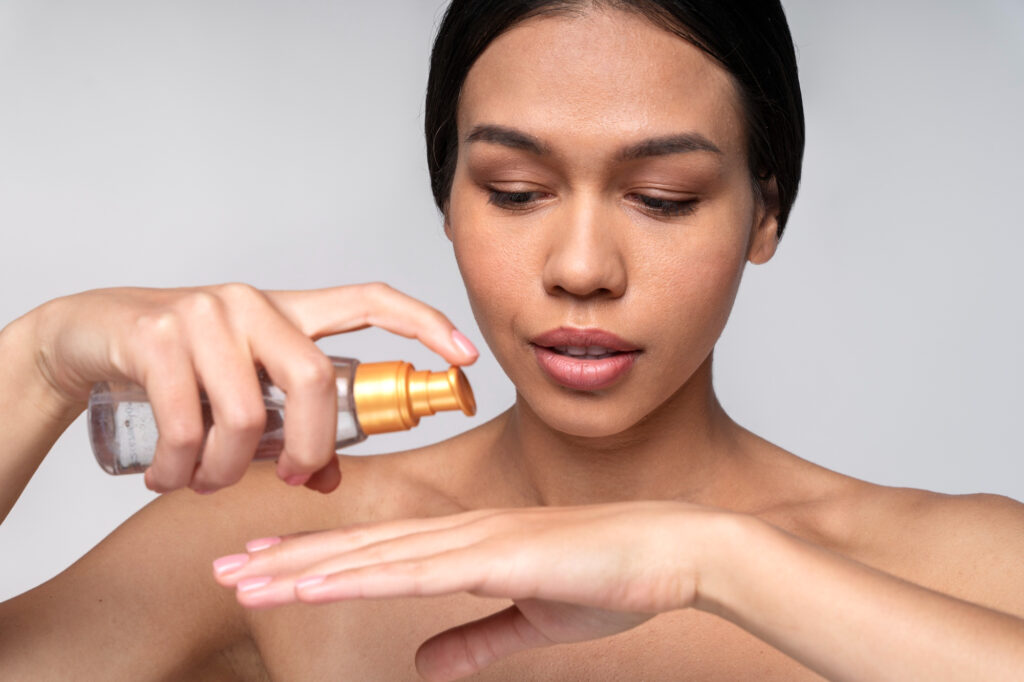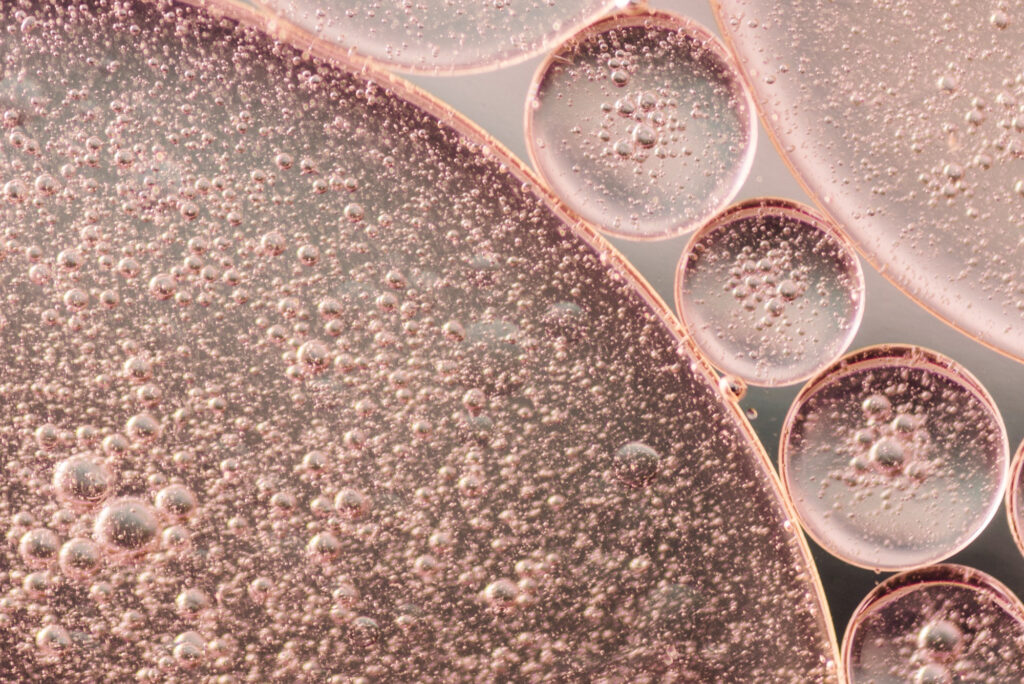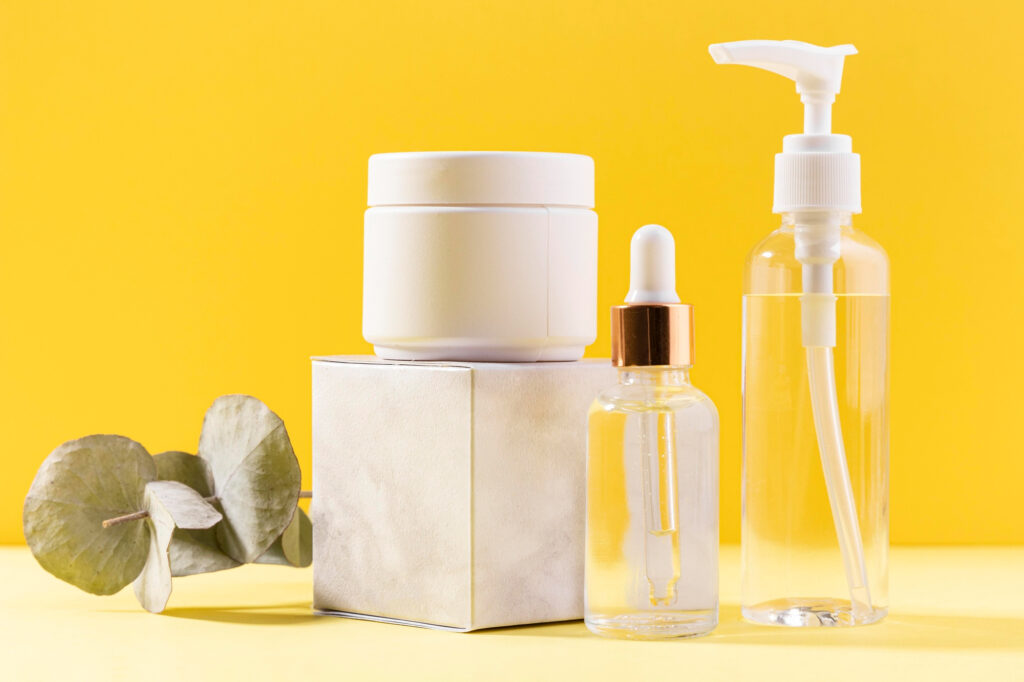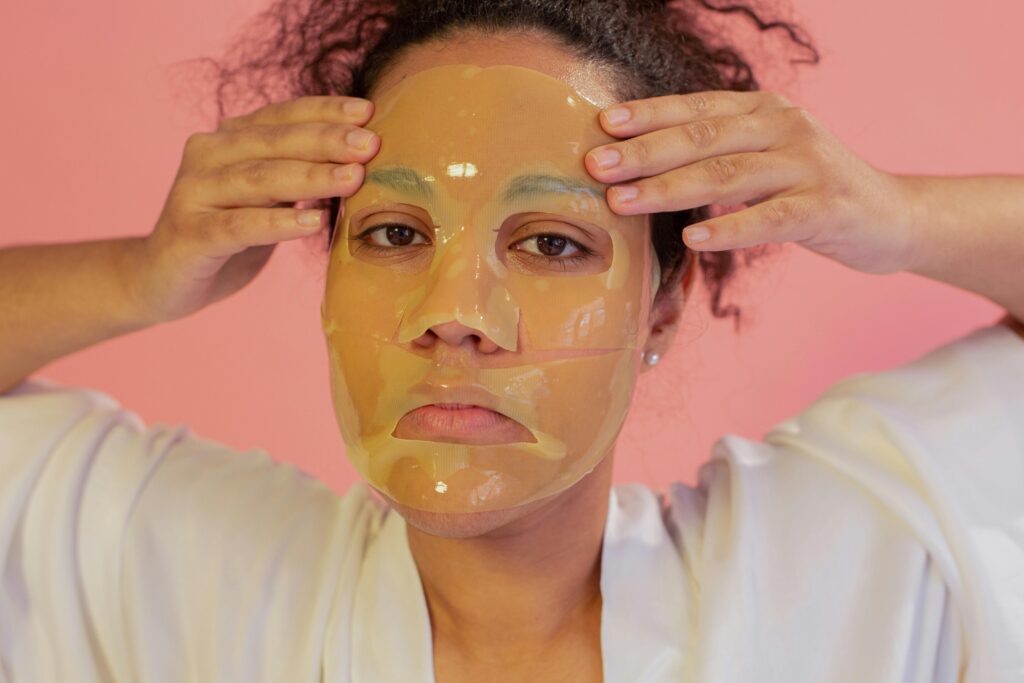
Ever heard of the “gut-brain connection”? Well, there’s a similar connection happening right on your face – the “skin-microbiome connection.” Just like your gut, your skin has a delicate ecosystem teeming with trillions of tiny creatures – bacteria, fungi, and even mites! These microscopic roommates, called the skin microbiome, play a crucial role in keeping your skin healthy and balanced.
Think of your skin microbiome as a bustling city. When the good bacteria (“citizens”) thrive, the city functions smoothly, protecting your skin from bad bacteria and irritation. But when the balance is disrupted, problems like dryness, acne, and eczema can pop up.
The good news? You can nurture your skin microbiome and achieve that coveted healthy glow by incorporating specific products into your routine. So, ditch the harsh chemicals and embrace the power of 10 Best Products to Support Your Skin Microbiome!
Also Read: 10 Best GMO-Free Skin-Friendly Solutions: Pamper Your Skin Naturally!
Why Should You Care About Your Skin Microbiome?
Here are some reasons why a healthy skin microbiome is essential:
- Stronger Barrier Function: The good bacteria help create a protective barrier on your skin’s surface, shielding it from environmental aggressors like pollution and harsh weather.
- Reduced Inflammation: A balanced microbiome keeps inflammation in check, preventing irritation and redness.

- Combats Bad Bacteria: The good bacteria act like a natural defense system, preventing the growth of bad bacteria that can cause acne and other problems.
- Promotes Overall Skin Health: A healthy microbiome contributes to a smoother, more radiant complexion and helps your skin age gracefully.
10 Best Products to Support Your Skin Microbiome
Ready to Support Your Skin Microbiome? Here’s Your Shopping List:
Gentle Cleansers:
Harsh cleansers can strip away your skin’s natural oils and disrupt the microbiome. Opt for a gentle cleanser that removes dirt and impurities without leaving your skin feeling dry or tight.
- Look for: Sulfate-free cleansers with ingredients like prebiotics (nourish good bacteria) and ceramides (strengthen skin barrier).
- Examples: Cetaphil Daily Facial Cleanser (https://www.cetaphil.com/us/cleansers/gentle-skin-cleanser/302990110227.html), CeraVe Foaming Facial Cleanser (https://www.cerave.com/skincare/cleansers/foaming-facial-cleanser)
Prebiotic-Rich Serums:
Prebiotics act like food for the good bacteria in your skin microbiome. Serums are lightweight, concentrated formulas that deliver a potent dose of prebiotics.

- Look for: Ingredients like inulin, oligosaccharides, and fermented extracts.
- Examples: The Ordinary Niacinamide 10% + Zinc 1% (https://theordinary.com/en-us/niacinamide-10-zinc-1-serum-100436.html), Biossance Squalane + Probiotic Renewal Serum (https://www.biossance.com/)
Probiotic-Infused Moisturizers:
Moisturizers are essential for keeping your skin hydrated and healthy. Look for ones infused with probiotics to directly add good bacteria to your skin microbiome.
- Look for: Live bacteria strains like Bifida ferment lysate or Lactobacillus.
- Examples: Tata Harper Regenerating Cleanser (https://tataharperskincare.com/products/regenerating-cleanser), Korres Yoghurt Nourishing Face Cream (https://www.korres.com/collections/greek-yoghurt)
Fermented Skincare Products:
Fermentation is a natural process that creates beneficial nutrients and probiotics. Fermented skincare products can be a great way to nourish your skin microbiome.
- Look for: Ingredients like fermented rice water, kombucha extract, or fermented honey.
- Examples: SK-II Facial Treatment Essence (https://www.sk-ii.com/product/essence/facial-treatment-essence), COSRX Galactomyces 95 Tone Balancing Essence (https://www.cosrx.com/products/galactomyces-95-tone-balancing-essence)
Postbiotic-Powered Products:
Postbiotics are the beneficial byproducts produced by good bacteria. Products containing postbiotics can help balance your skin microbiome and improve its overall health.
- Look for: Ingredients like lactic acid, hyaluronic acid, and saccharomyces lysate.
- Examples: Drunk Elephant T.L.C. Framboos Glycolic Night Serum (https://www.drunkelephant.com/collections/serums/t.l.c.-framboos%E2%84%A2-glycolic-night-serum-999DE00000104.html), Youth To The People Superfood Antioxidant Serum (https://www.youthtothepeople.com/face-serums-eye-creams/)
Also Read: Postbiotic Skincare: What are Postbiotics and How Do They Benefit the Skin?
Soothing Masks:
Calming and hydrating masks can be a great way to give your skin microbiome a boost. Look for masks with ingredients that soothe irritation and promote a healthy environment for good bacteria to thrive.

- Look for: Ingredients like aloe vera, oatmeal, and centella asiatica (CICA).
- Examples: Aveeno Calm + Restore Nourishing Oat Mask (https://www.ulta.com/p/calm-restore-nourishing-oat-facial-cleanser-pimprod2017040?sku=2569999), First Aid Beauty Ultra Repair® Oat and Hemp Seed Hydra-Firm Sleeping Mask ([invalid URL removed])
Gentle Exfoliators:
Harsh scrubs can disrupt your skin microbiome. Opt for gentle exfoliators with chemical exfoliants like AHAs (alpha hydroxy acids) or BHAs (beta hydroxy acids) that remove dead skin cells without irritation.
- Look for: AHAs like lactic acid or glycolic acid for dry skin, BHAs like salicylic acid for oily skin.
- Examples: Paula’s Choice 2% BHA Liquid Exfoliant ([invalid URL removed]), The Inkey List Lactic Acid 10% + HA ([invalid URL removed])
Prebiotic-Rich Sunscreens:
Sun protection is crucial for healthy skin. Choose a sunscreen with SPF 30 or higher that also contains prebiotics to support your skin microbiome.
- Look for: Mineral sunscreens with zinc oxide or titanium dioxide, along with prebiotic ingredients.
- Examples: Biossance Squalane + Zinc Sheer Mineral Sunscreen SPF 50 ([[invalid URL removed]]), Sun Bum Mineral Sunscreen Lotion SPF 50 (Fragrance Free) ([invalid URL removed])
Probiotic Supplements (Consult a Doctor First):
While research is ongoing, some studies suggest that taking oral probiotic supplements might benefit your skin microbiome. However, it’s crucial to consult with your doctor before starting any new supplements.
- Talk to your doctor: Discuss if a probiotic supplement is right for you and what strain might be most beneficial.
Focus on a Healthy Lifestyle:
Taking care of your skin goes beyond products. A healthy lifestyle supports a balanced microbiome throughout your body, including your skin.
- Eat a balanced diet: Rich in fruits, vegetables, and whole grains to nourish your gut and skin health.
- Manage stress: Stress can disrupt the microbiome. Practice relaxation techniques like meditation or yoga.
- Get enough sleep: Aim for 7-8 hours of sleep per night to allow your body to restore and heal.
Remember: Consistency is key! Just like building a strong immune system, supporting your skin microbiome takes time and dedication. By incorporating these microbiome-friendly products and lifestyle habits into your routine, you can cultivate a healthy, balanced environment for your skin to thrive, resulting in a radiant, healthy glow!
Additional Resources:
- American Academy of Dermatology: Skin Microbiome: This website explores the science behind the skin microbiome and its impact on skin health: https://www.aadmeetingnews.org/aad-2023-annual-meeting/article/22766901/new-approach-uses-microbiome-to-treat-skin-disease
- National Institutes of Health: Microbiome: This website provides an in-depth look at the human microbiome and its role in health: https://www.niehs.nih.gov/health/topics/science/microbiome
By utilizing these resources and the information in this guide, you can embark on a journey towards achieving healthy, microbiome-supported skin! Embrace the power of good bacteria and watch your skin flourish!
10 Best Products to Support a Healthy Skin Microbiome: FAQs
This section dives deeper into addressing common questions you might have about supporting your skin microbiome with products:
- I have sensitive skin. Are all these products safe for me?
Not all microbiome-friendly products are created equal. If you have sensitive skin, it’s important to choose gentle formulas. Here are some tips:
- Look for fragrance-free and dye-free products: Fragrances and dyes can irritate sensitive skin.
- Patch test before applying: Before using any new product on your entire face, apply a small amount to your inner arm and wait 24 hours to see if there’s any reaction.
- Start with one new product at a time: Introducing too many new products at once can be overwhelming for your skin. Add them gradually to your routine.
- Focus on soothing ingredients: Look for ingredients like aloe vera, oatmeal, and centella asiatica (CICA) known for calming sensitive skin.
- Do I need to throw away all my current skincare products?
Not necessarily! If your current routine isn’t causing any problems, you don’t need to overhaul it completely. Gradually incorporate microbiome-friendly products one by one to replace older ones as they run out.
- Are expensive skincare products better for my skin microbiome?
Price doesn’t always equate to better results when it comes to microbiome support. You can find many effective drugstore products formulated with prebiotics and other microbiome-friendly ingredients. Focus on the ingredients and what works best for your skin type and budget.
- Can I use these products if I have acne?
Many microbiome-friendly products can actually benefit acne-prone skin. Look for products containing prebiotics and probiotics, which can help balance the skin microbiome and reduce inflammation that contributes to acne breakouts. However, if you have severe acne, consult a dermatologist for a personalized treatment plan.
- How long will it take to see results from using these products?
Just like building a strong immune system, supporting your skin microbiome takes time. Be patient and consistent with your routine. While some people might notice improvements in weeks, it can take several months to see the full benefits.
- What if a product breaks me out?
Even with careful selection, a product might not agree with your skin. If you experience breakouts after introducing a new product, discontinue use and let your skin recover. Consult a dermatologist if the irritation persists.
- Do I need to use all 10 products listed in the article?
No, this is a list of options to get you started. The best approach is to personalize your routine based on your skin type and specific concerns. Start with a gentle cleanser and moisturizer, then add other products like serums, masks, or exfoliators as needed.
- Is it okay to use expired skincare products?
No. Expired skincare products can lose their effectiveness and might even harbor bacteria that can irritate your skin. Always check the expiration date and discard any products that are past their prime.
- Should I store my skincare products in the refrigerator?
Some products, like eye creams or serums with specific ingredients, might benefit from refrigeration. However, most skincare products are formulated to be stored at room temperature. Check the instructions on the product label for storage recommendations.
- Where can I learn more about the skin microbiome?
There are many resources available online and in libraries. The websites listed in the “Additional Resources” section of this article provide a good starting point to learn more about the skin microbiome and its impact on skin health.

